RV batteries are an essential part of any off-the-grid adventure. But when temperatures drop, and they are plugged in, what happens? Will RV batteries freeze?
It’s an essential question for any RVer wanting to ensure their equipment stays safe. In this article, I’ll explore the factors that can lead to an RV battery freezing and how to protect it from the cold winter elements best while plugged in.
We all want to ensure our RV batteries can handle whatever Mother Nature throws our way so that we can enjoy the freedom of the open road.
Factors that can lead to RV battery freezing
Knowing the factors leading to RV battery freezing can help you keep your RV running smoothly, so you can get out and enjoy the open road! Deep-cycle batteries, the most common RV battery, are susceptible to freezing due to the expansion of electrolytes when temperatures drop.
Factors determining whether a battery will freeze include its charge, the length of the temperature drop, and insulation. A fully charged battery is impervious to freezing in most parts of the world, while a battery with a low charge state can freeze at temperatures over 100 degrees warmer than a fully charged battery.
Insulated batteries are more resilient to cold temperatures, and fully charging the battery is the best way to prevent freezing. Insulation is also essential to protect the RV battery from freezing and can be directly applied to the battery or the RV itself.
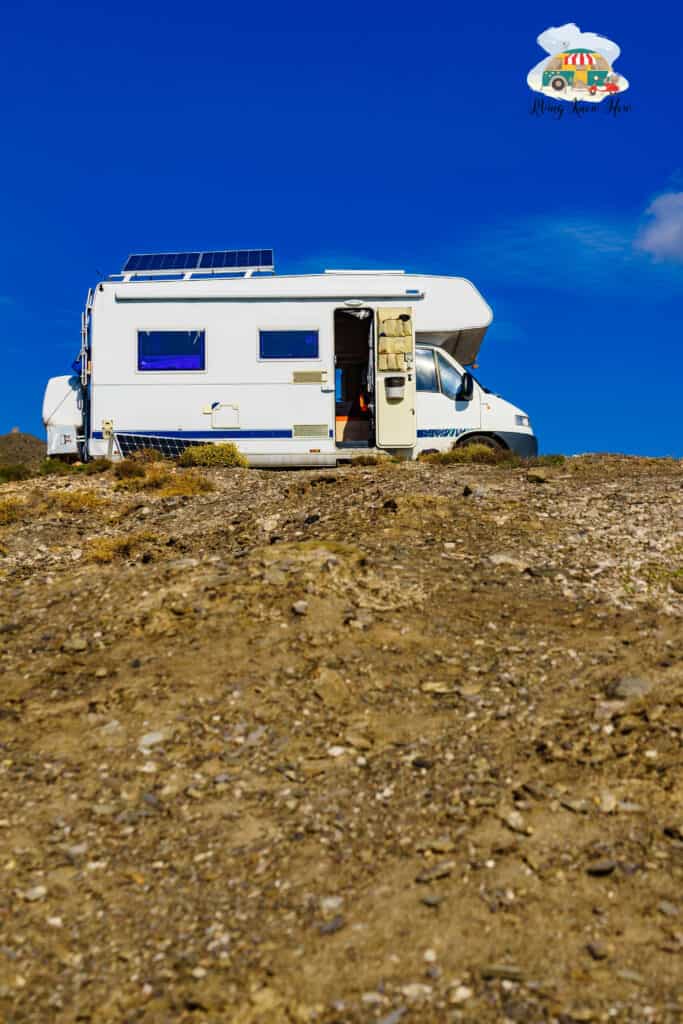
A battery disconnect switch in the off position is necessary if leaving the battery outside and away from charging sources. If possible, disconnecting the battery and bringing it inside is recommended, and small battery banks can also be taken indoors.
Solar trickle chargers, insulated battery boxes, battery wraps, and thermal battery wraps can also provide varying degrees of insulation. It’s important to remember that charging lithium-ion batteries at temperatures below 32 degrees can damage them and reduce their lifespan.
Understanding and following these tips is critical to getting the most out of your deep-cycle RV, camper, or trailer battery. Keeping your RV battery insulated and fully charged is essential to prevent freezing and will ensure that you can hit the open road and take in all that freedom has to offer. Knowing the factors leading to RV battery freezing can help you stay prepared to enjoy the road whenever the mood strikes!
Low battery charge: A fully charged battery is less likely to freeze than a discharged battery
If your battery is low on charge, it’s more prone to freezing than a fully charged one. Keeping your battery at an optimal charge level is essential to prevent freezing. This is especially true for deep-cycle batteries, as they’re the most common type of RV battery.
Another consequence of a low-charge battery is: It can freeze at temperatures over 100 degrees warmer than a fully-charged battery. Keep your battery at a decent charge level, especially in colder climates.
To help maintain a healthy charge, it’s recommended to charge your battery before each use fully. This ensures your battery is in the best possible condition and less likely to freeze. You may consider leaving your battery on a trickle charger or periodically charging it. This can help keep it at full charge for longer, reducing the risk of freezing.
Investing in an interstate RV battery or other top-of-the-line RV batteries can add extra protection and reduce the risk of freezing.
Solar trickle chargers are also an option, as they can keep your battery from discharging while protecting it from theft. But it’s important to note that these should only be used in sunny areas, and lithium-ion batteries shouldn’t be charged in temperatures below 32 degrees.
Cold weather: The colder the weather, the more likely an RV battery will freeze.
Brace yourself for a harsh winter – an RV battery won’t last long in the cold! Cold weather can have a devastating effect on RV batteries, especially when they’re not fully charged. The more complex the weather, the more likely an RV battery will freeze, which can cause damage or failure.
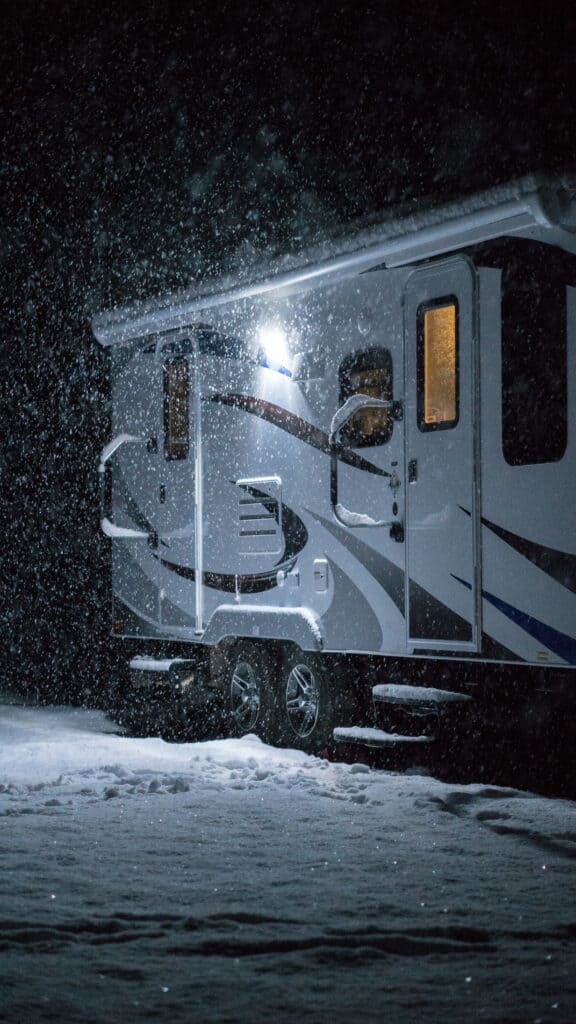
It’s crucial to ensure your RV battery is fully charged before going into cold weather, as a fully charged battery is much less likely to freeze than a discharged one. Insulating RV batteries as much as possible is crucial to last in cold weather.
Insulated battery boxes, battery wraps, and thermal battery wraps are all great options for providing insulation to RV batteries. Solar trickle chargers can also help by slowly charging the battery, although they require a sunny location and protection from theft. It’s best to disconnect the battery and bring it inside during cold weather, as this is the best way to prevent freezing.
It’s also important to remember that lithium-ion batteries shouldn’t be charged at temperatures below 32 degrees. Remember to turn off the battery disconnect switch if the battery is left outside and away from any charging sources. Parasitic loads can drain power from RV batteries when not used, so ensure these are also turned off.
Exposure to moisture: Moisture can lower the freezing point of water, which can increase the risk of RV battery freezing
Be careful of moisture, as it can drop the freezing point of water and increase the risk of your battery freezing. Moisture significantly impacts the freezing temperature of the water, which can affect the temperature of your RV battery.
When moisture is present, the freezing point of water drops, leading to an increased risk of your RV battery freezing. This is especially true in cold climates, where temperatures drop below 32 degrees Fahrenheit.

It’s essential to ensure your battery is adequately insulated from moisture to prevent it from freezing. Insulation is key when it comes to protecting your RV battery from freezing.
If you’re storing your RV outdoors, use an insulated battery box or wrap. This will help keep the battery warm and reduce the risk of it freezing. If you’re storing your RV indoors, keeping the battery disconnected’s an excellent idea to protect it from moisture.
Remember that batteries can freeze even if fully charged. This is why it’s essential to take extra precautions regarding the temperature and moisture of your RV battery.
Keep your battery insulated and disconnect if stored in a cold, damp place. Taking the time to care for your RV battery properly will help keep it from freezing and ensure it lasts for years.
Old age: Older batteries are more likely to freeze than newer batteries
As RV batteries age, they become more susceptible to freezing, even when fully charged. This is due to a natural degradation of the battery’s chemistry over time, which can decrease its ability to hold a charge. This means that even when a battery is fully charged, it’s still more likely to freeze than a newer battery.
The process of battery freezing is also affected by other factors, such as the charge state of the battery, the length of time it’s exposed to cold temperatures, and the insulation around it. For example, a low-charge state battery can freeze at temperatures much warmer than a fully charged battery. Moreover, insulated batteries will stay warmer in colder temperatures for a more extended period.
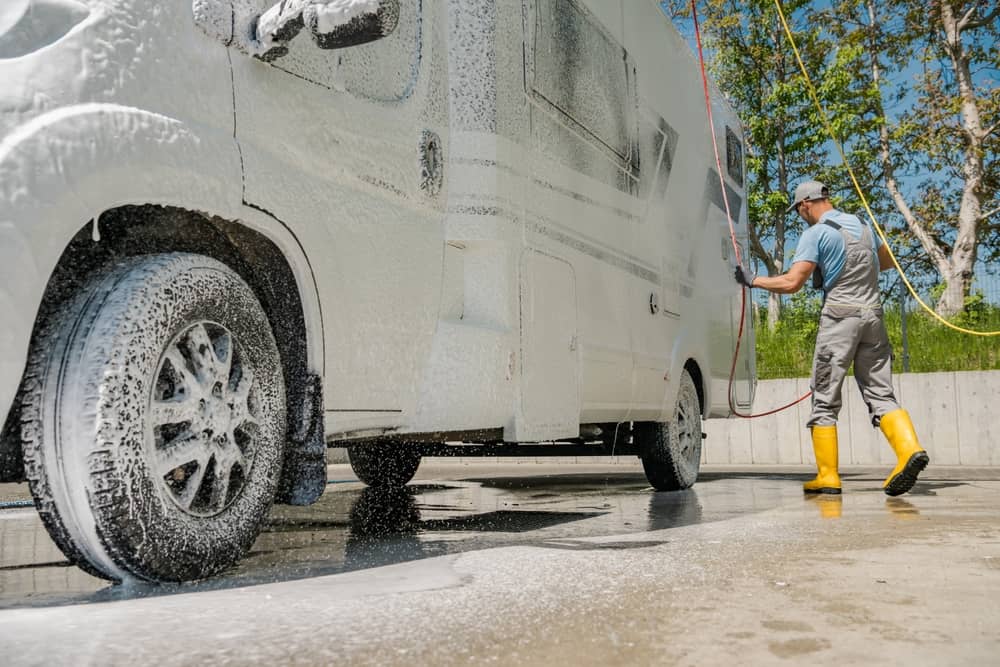
These factors contribute to RV battery freezing, and taking steps to prevent it is essential. Keeping the battery fully charged is the best way to prevent freezing, and this can be done with a trickle charger or by periodically recharging the battery. Additionally, insulated battery boxes, battery wraps, and thermal battery wraps can provide varying degrees of insulation.
In some cases, it may be necessary to disconnect the battery and bring it inside to prevent freezing.
Tips for preventing RV battery freezing
Now that we’ve discussed the old age of RV batteries let’s move on to preventing them from freezing when plugged in. Preventing RV batteries from freezing is essential as it’ll help extend the battery’s life and keep you from buying a new one.
Here are a few tips to keep your RV battery from freezing while plugged in:
- Keeping your RV plugged in is essential, as that’ll help keep the battery charged and avoid having it freeze.
- If you cannot keep it plugged in, periodically charge the battery to keep it from discharging too much.
- Do you plan to park your RV for an extended period? Shut off the battery disconnect switch and use a battery tender. This’ll keep the battery from draining and help keep it from freezing.
Make sure to keep your RV insulated as much as possible. This’ll help regulate the battery’s temperature even in the coldest weather.
Keep your batteries fully charged. This is the best way to prevent them from freezing.
To ensure your battery stays in top shape, keeping it fully charged is essential – that’s the best way to avoid a freeze-up! To prevent your RV batteries from freezing, keeping them at full charge is necessary.
If the battery is left in a low charge state, it will be more susceptible to freezing temperatures. This is especially true for deep-cycle batteries, the most common type used in RVs.
| Charge | Temperature | Deep-Cycle Batteries |
|---|---|---|
| 0% | -76°F | Freezes |
| 12% | -58°F | Freezes |
| 25% | -41°F | Freezes |
| 50% | -17°F | Freezes |
| 75% | 8°F | Freezes |
| 100% | 32°F | Not Freezes |
Lithium batteries are also used in RVs, and they fare better in cold weather than deep-cycle batteries. However, charging lithium-ion batteries at temperatures below 32 degrees can damage them. Keeping your RV batteries fully charged is the best way to ensure they do not freeze.
When using a trickle charger or solar charger, it’s crucial to shield the battery from theft and ensure it’s in a sunny area. Place the battery disconnect switch off if you plan to store the battery outside.
Disconnecting the battery and bringing it inside is also an excellent way to protect it from freezing. Insulated battery boxes, wraps, and thermal wraps can also provide varying degrees of insulation.
To get the most out of your battery, it’s best to keep it charged, limit the amount of time it’s disconnected, and use insulation when necessary. With these steps, you can enjoy the freedom of RVing worry-free!
Store your RV in a warm, dry place. This will help to keep the batteries from freezing.
You’ll want to ensure your RV is parked in a warm, dry place to help keep your batteries in top condition. Cold temperatures can cause your battery to freeze, which can damage and shorten the lifespan of your battery.
If you can’t store your RV in a warm, dry place, you should consider investing in an insulated battery box, battery wrap, or thermal battery wrap to provide some insulation from the cold weather. These accessories can help keep your battery from freezing and can be easily installed.
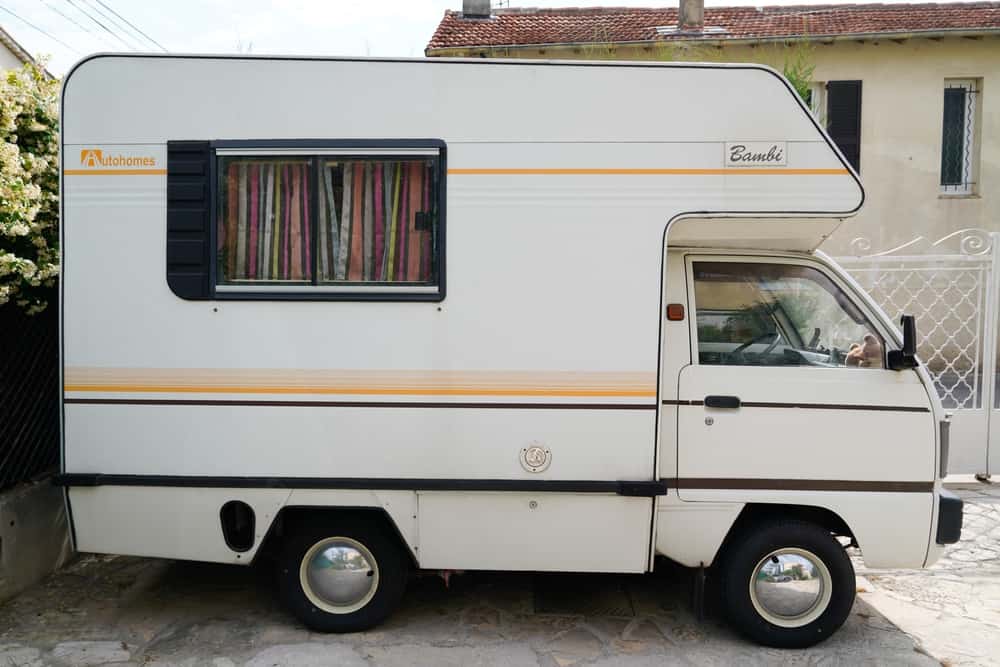
In addition to storing your RV in a warm, dry place, you should ensure your batteries are fully charged. This helps to keep the electrolytes from expanding, which can cause the battery to freeze. Keeping your batteries fully charged also means they’re ready to use when you are.
With a full charge, you can be sure your RV has plenty of power to keep the lights on, the water pump running, and the fan going.
It’s also essential to ensure your RV has a battery disconnect switch. This switch prevents parasitic loads from draining your battery and ensures your RV has power when needed. Having a battery disconnect switch installed is an easy and effective way to keep your RV powered up and ready to go.
Cover your batteries with a tarp or blanket.
Covering your batteries with a tarp or blanket can help keep them insulated and safe from the cold, preventing damage or failure. Insulating your RV batteries can provide varying degrees of protection against freezing, depending on the type of insulation.
Several options are available, such as insulated battery boxes, battery wraps, thermal battery wraps, and disconnecting the battery and bringing it inside. Insulated battery boxes are the most effective way to keep batteries from freezing, as they can be securely locked and provide good insulation.
Battery wraps can also be used to protect batteries but have limited insulation. Thermal battery wraps provide more protection but require a more permanent installation. Disconnecting the battery and bringing it inside is the most reliable option. However, it may not always be feasible.
It is vital to keep your RV batteries charged to prevent freezing. Fully charging the battery is the best way to prevent freezing. However, it is also essential to periodically assess the battery to keep it at its optimal voltage. If you cannot bring the battery inside, leaving it on a trickle charger or installing a solar trickle charger can help keep the battery fully charged and protect it from freezing.
Something to keep in mind, disconnecting the battery and placing the disconnect switch in the off position can also help protect it from power-draining parasitic loads.
Replace your batteries every 3-5 years. Older batteries are more likely to freeze than newer batteries

Replacing your batteries every 3-5 years is essential, as older ones are far more prone to freezing than newer ones. This is especially true for motorhomes, trailers, and other RVs frequently exposed to extreme temperatures.
Like any other electronic device, batteries wear out over time and require replacing. As such, it’s essential to check the age of your battery every couple of years to ensure it’s still functioning properly. The age of your battery can be determined by the manufacture date, which should be printed on the battery itself.
If the battery is more than 3-5 years old, it’s recommended that you replace it with a new one. Newer batteries are more efficient and can handle extreme temperatures better than their older counterparts. Additionally, they’re often equipped with modern features that help to prevent sulfation and other types of damage.
Properly maintaining your RV batteries is also essential to increase their lifespan. This includes keeping them charged, storing them in a cool and dry place, and disconnecting them when unused. Also, insulating them with a tarp or blanket can help prevent them from freezing in the winter.
Frequently Asked Questions
What is the optimum temperature for RV battery storage?
The best temperature for RV battery storage is between 80 and 100% charge and 32 and 122 degrees Fahrenheit. Fully charging the battery will help keep it from freezing and maximize its life.
Are lithium-ion batteries more resistant to freezing than deep-cycle batteries?
Yes, lithium-ion batteries are more resistant to freezing than deep-cycle batteries. They can withstand colder temperatures and maintain their charge better. Insulated batteries will stay warmer in colder temperatures, too. For optimal performance, fully charge the battery and use it cautiously in cold weather.
How can I tell if my RV battery is discharged?
You can tell if your RV battery is discharged by checking the voltage with a multimeter. If it’s below 12 volts, your battery is likely drained and needs to be recharged. Check the charge level regularly to get the most out of your RV experience.
Do I need to disconnect my battery if I’m leaving my RV for an extended period?
Yes, it’s best to disconnect your battery if you’re leaving your RV for an extended period. This will prevent any unnecessary power drains and help keep your battery healthy. Plus, you’ll save money on electricity costs.
How often should I replace my RV batteries?
Replacing RV batteries depends on usage and proper maintenance. Deep-cycle batteries should be disconnected and recharged every 6-12 months. Lithium batteries fare better in cold weather but require regular checks and charging. Taking proper care of your batteries ensures your RV will be ready to go when you are.
Conclusion
I’ve learned that RV batteries can freeze if not properly handled, especially in cold weather.
To protect your RV battery from freezing, it’s essential to keep it fully charged, store it in a warm, dry place, and cover it with a tarp or blanket.
Replacing your RV battery every 3-5 years is an excellent way to ensure it’s in good condition and less likely to freeze.

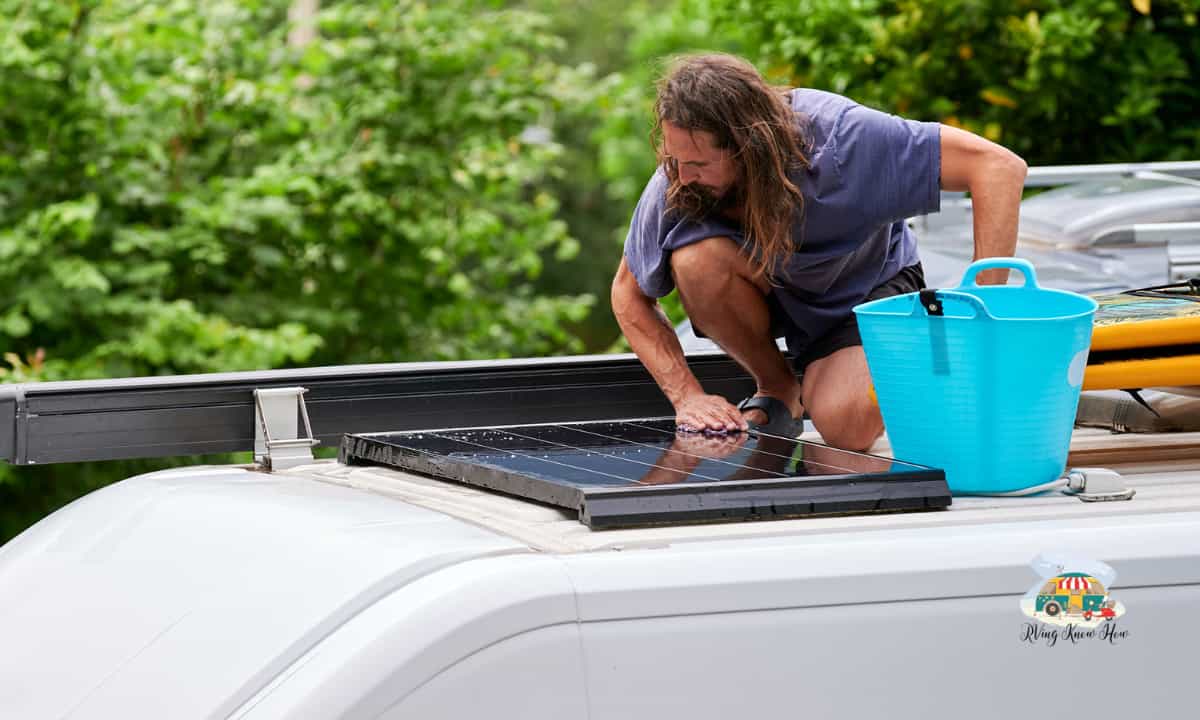


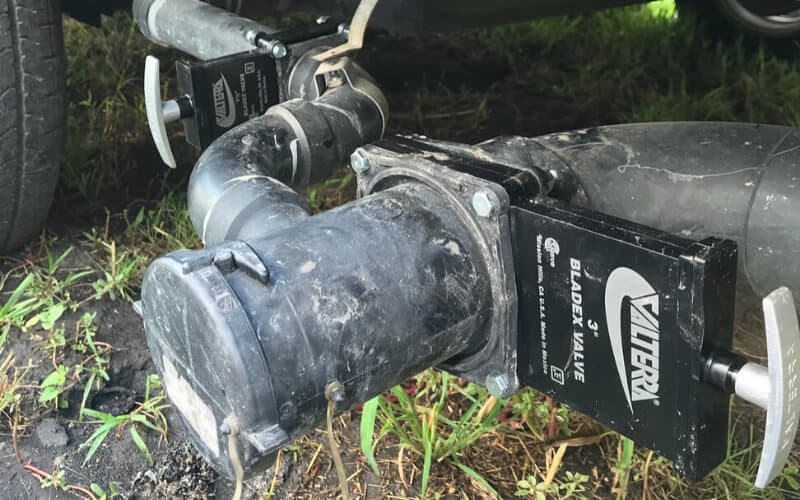
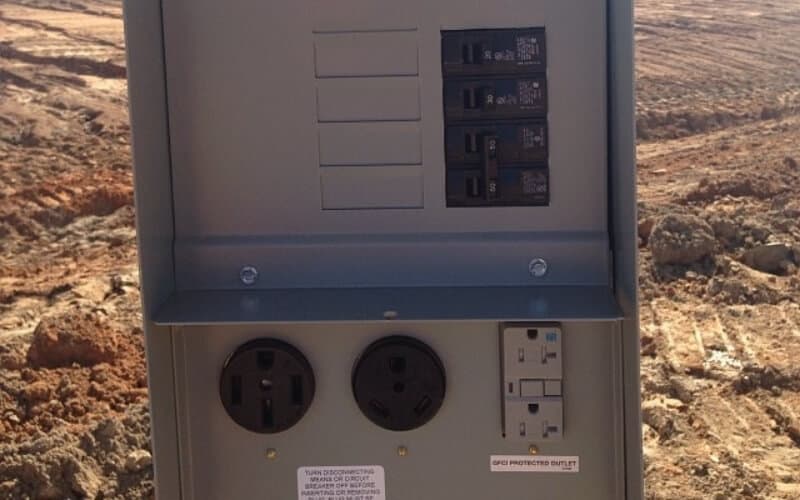
![How To Winterize Your RV Camper [A Step-by-Step Guide] 12 How Do You Winterize an RV](https://www.rvingknowhow.com/wp-content/uploads/2021/01/How-Do-You-Winterize-an-RV.jpg)